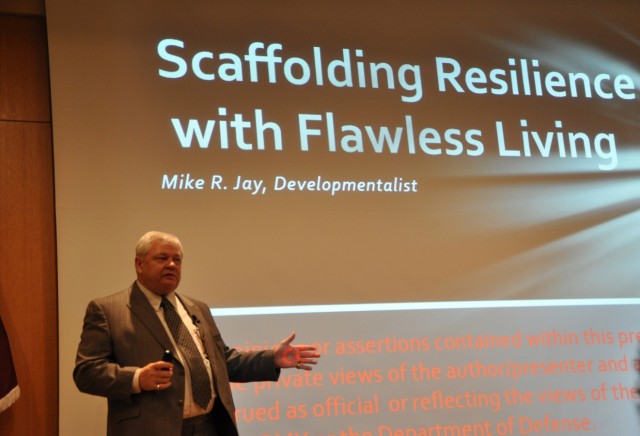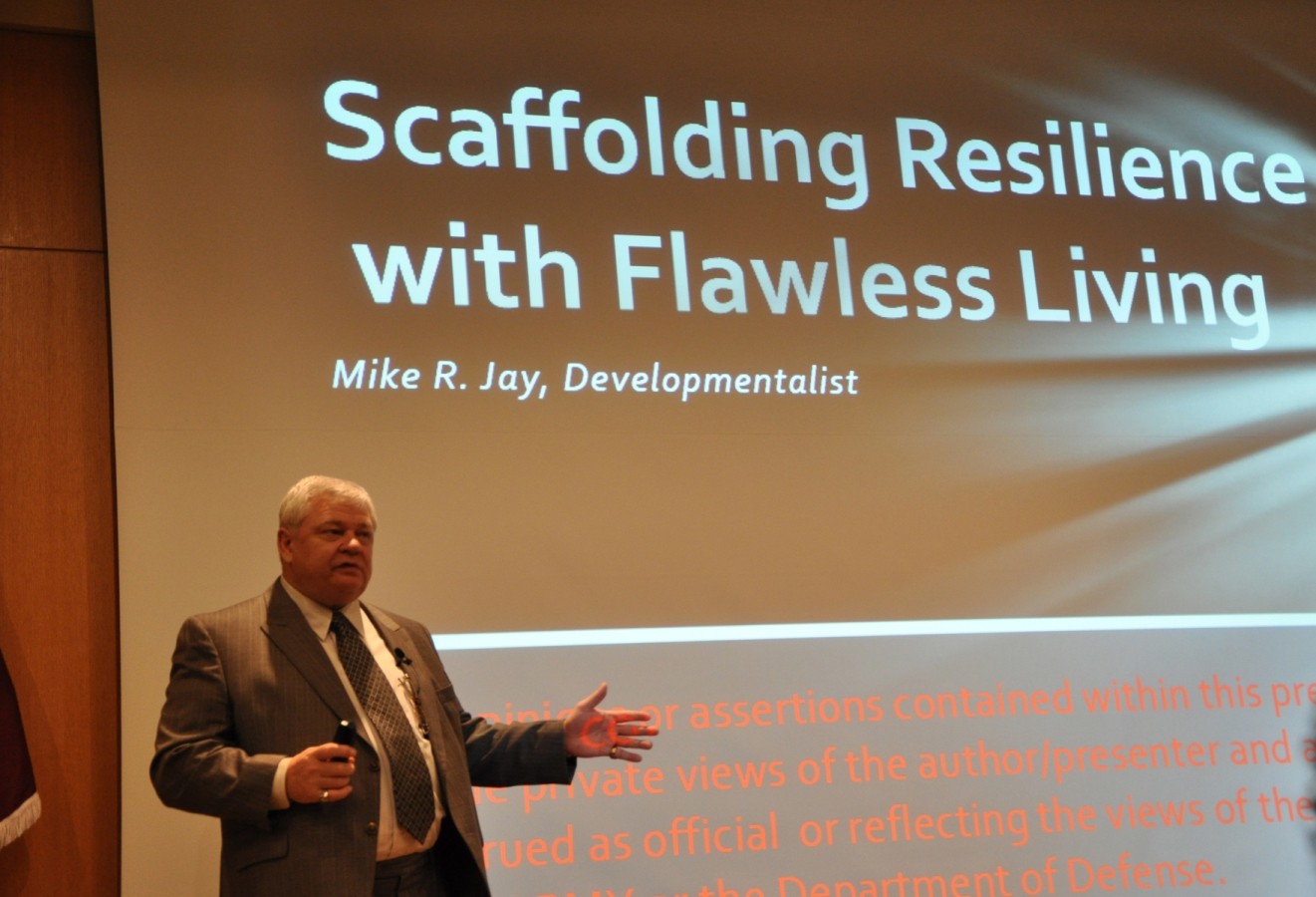
FORT SAM HOUSTON, Texas -- Individuals, organizations and societies undergoing tremendous changes in culture and system can be sustained by providing a framework for success according to Mike Jay, a professional business coach, consultant and entrepreneur during an Aug. 12 presentation at Brooke Army Medical Center.
He said that framework of support can be anything, including business or personal coaching, other people, money, a place to live, or material possessions.
"People can function at a level more complex under support," Jay said, describing the situation of a client he coached who was depressed because his career in medicine was not as satisfying as the doctor had originally thought.
"We got him out of that practice and "scaffolded" him with 17 employees. He paid off his loans, went back to school and became what he wanted to be, a pediatric intensivist," Jay said.
Each individual can't do everything he said, using his own situation as another example of scaffolding.
"I have 25 people working for me and each does different kinds of things that I don't want to do. For instance, I don't carry business cards anymore," Jay said adding that he has an assistant who maintains contacts with clients and potential clients allowing him to do the work he prefers.
From an intervention perspective, he suggests that scaffolding drug abusers involves first accepting addicts for who they are and then changing the culture of abuse such as making the cost of drugs less costly and consequences less severe.
"I don't think we'd have so much bad behavior if we did more scaffolding because right now our standards are so narrow of what is good and what is bad, that we have to rethink the whole thing," Jay said. "That comes back to values, religion and spirituality."
Finding resilience also means changing paradigms according to Jay.
For instance, scaffolding depression means first removing the pathology label, looking at it as a coping mechanism and as normal as getting a cold rather than a disease.
"It's not something that's wrong with [Soldiers] so they don't have to hide it," Jay said. "Then they would begin to seek help."
He explained that research has shown that people have certain inborn traits that invariably lead them in certain directions whether positive or negative and no amount of consequence or reward can prevent those behaviors.
Looking toward joint basing and the tremendous growth Fort Sam Houston is experiencing, Jay suggests putting those individuals who can best manage change into lead roles while ensuring maximum support for those who are having difficulties.
Jay also stressed that those individuals who cope more effectively with change and transition are those who know themselves through self discovery and are wholly engaged with their communities.
"One key that produces more leverage for resilience is the ability to reach out. In other words, if I can't do it and I know I can't do it, and I ask you for help, the two or three or four of us might do it. If you don't know yourself, you don't know what help you need."
But resilience is achieved by scaffolding the system not necessarily the individuals because of the complex nature of today's society he explained, and that complexity is increasing.
"The idea is to have the individual reach out for help and as a group [find answers to] the success requirements. As complexity increases, our individual abilities to map the requirements of complexity will grow less and less."
"We are interested in the scaffolding approach Mike Jay presented and thought it was a good opportunity to simulate conversation and thinking about resilience," said Sandy Fitzgerald, BAMC Provider Resilience Program.
Fitzgerald said about 70 people attended the series of four workshops that followed Jay's seminar offering a more in-depth look at the scaffolding model.

Social Sharing